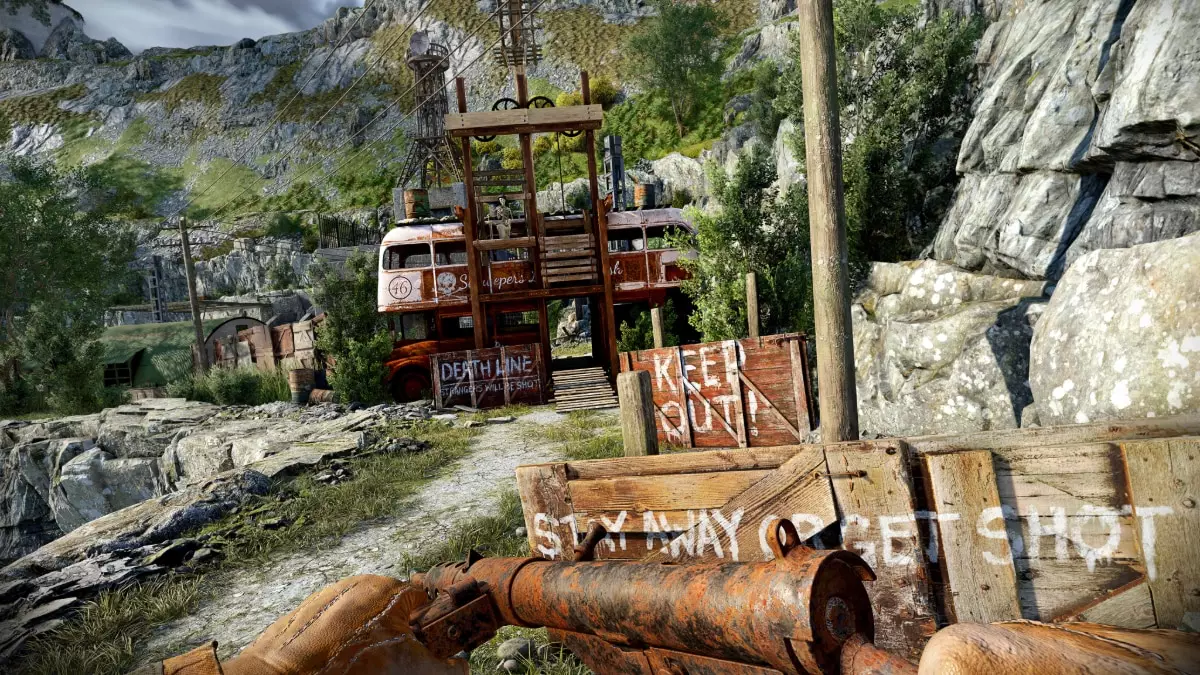Launched amidst a flurry of excitement on multiple platforms, Atomfall has achieved remarkably high visibility and player engagement, culminating in over two million players shortly after its debut. This action-survival title from Rebellion Developments not only marks a significant milestone for the studio but also challenges the gaming industry’s traditional marketing and distribution models. In the age of subscription services, the question arises: can independent studios truly thrive, or are they destined to be overshadowed by industry giants?
The Partnership with Xbox Game Pass
One of the most notable elements of Atomfall’s launch strategy was its simultaneous introduction on Xbox Game Pass— a move declared a “huge success” by Rebellion CEO Jason Kingsley. In a gaming landscape increasingly dominated by subscription models, Kingsley’s comments are not only illuminating but carry the weight of a successful case study in practical marketing. Through this collaboration, Atomfall gained immediate access to a vast player base eager for new experiences, which serves to underscore the potential of partnerships that benefit both developers and publishers.
Game Pass acts as a powerful platform for discoverability, allowing players to explore new IPs without the traditional financial commitment usually associated with purchasing a game. This results in an expansive, multiplicative effect where satisfied players influence their circles, thus driving organic interest and engagement. By strategically aligning with Microsoft, Rebellion has not just released a game; they essentially launched a cultural phenomenon that thrives on community recommendation.
The Numbers Don’t Lie
Rebellion’s impressive figures speak volumes about Atomfall’s reception. Surpassing two million players in just weeks, this statistic should be taken with caution; while it reflects engagement, it does not necessarily equate to direct sales. However, Kingsley asserts that their revenue has exceeded mid-range expectations—signifying that the game has found a way to navigate the complexities of the modern gaming market. More than just a fleeting fad, Atomfall appears to be making a lasting impact.
This phenomenon raises a crucial point: long gone are the days where sales numbers alone dictated success. Instead, the gaming landscape is evolving, recognizing user engagement, streaming presence, and community-building as equally significant metrics. With Atomfall, Rebellion may serve as harbingers of a new wave: harnessing both digital subscription economics and community-driven marketing.
The Implication of Fixed Returns
Kingsley’s admission that the Game Pass partnership guarantees a fixed return is particularly insightful. This safety net fosters a more forgiving environment for independent studios, enabling them to take risks on bold creative ventures without the dire fear of financial ruin that has historically loomed over smaller developers. From this perspective, Atomfall not only symbolizes artistic success but also reflects a paradigm shift towards secured profitability for independent creators.
Nonetheless, it raises an intriguing question: Does the reliance on subscription services mark a decline in truly independent game development? With studios increasingly tying their fortunes to ecosystem giants, there’s a danger that creativity could become muted or commercialized to fit the mold of what is deemed popular. It’s essential for studios like Rebellion to find a balance that allows artistic expression while still reaping financial rewards.
Looking Ahead: Sequel Possibilities
In the wake of Atomfall’s success, discussions surrounding potential sequels are already underway. While this speaks to the enthusiasm surrounding the title, it also prompts a broader conversation about capitalizing on momentum within the gaming industry. Can Rebellion repeat their success with Atomfall?
The excitement for a sequel raises significant inquiries into long-term strategy. Will Rebellion’s future projects continue to align themselves with subscription models? If so, how will they maintain inventive content delivery without succumbing to the perils of formulaic releases? A successful sequel would require not just replicating the initial magic of Atomfall but also demonstrating growth and evolution within the context of the narrative, engaging gameplay, and technical innovation.
While Atomfall is more than just a milestone for Rebellion Developments, it also serves as a backdrop for the greater narrative shaping independent gaming. The success story that unfolded is a testament to the potential that thoughtful innovation and strategic partnerships hold. The intersection between community engagement, technology, and artistry will undoubtedly shape future conversations in a rapidly evolving landscape.


Leave a Reply